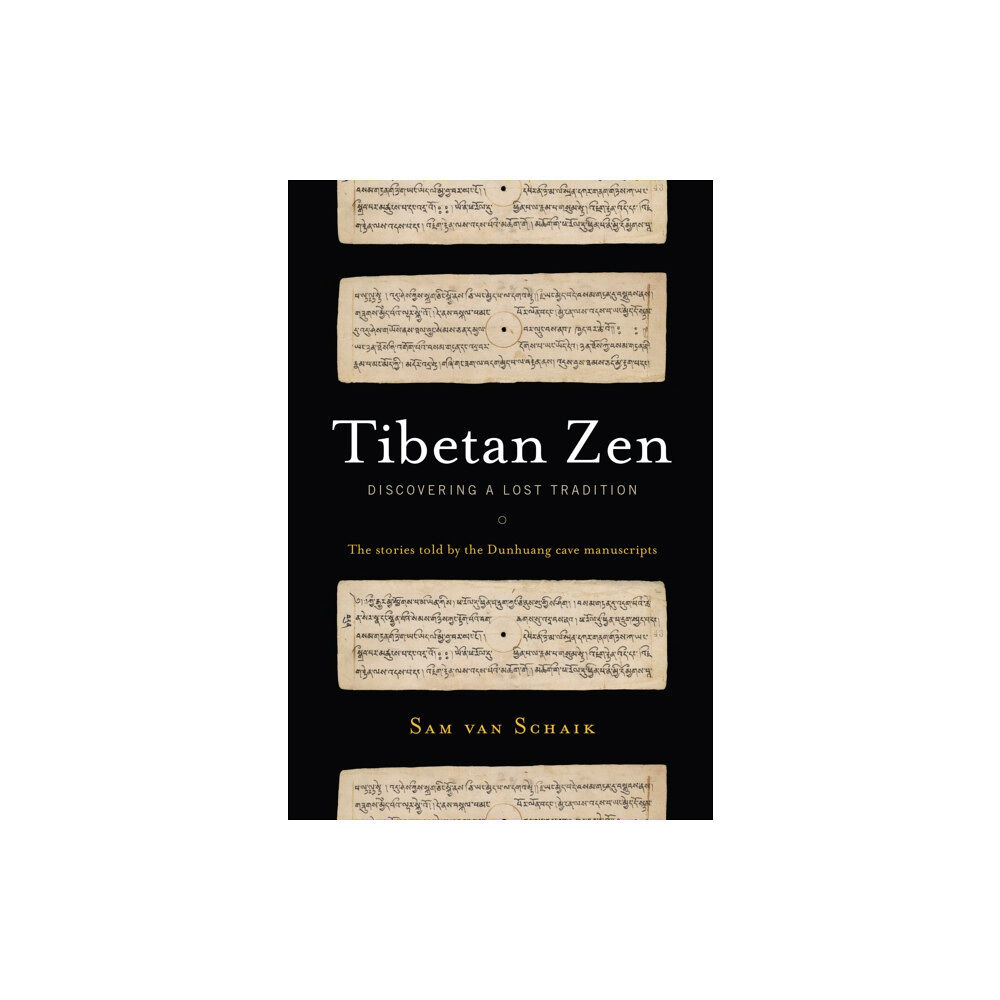- Hem
- Böcker
- Kurslitteratur
- Filosofi, Religion & Etik
- Tibetan Zen (häftad, eng)

Tibetan Zen (häftad, eng)
A groundbreaking study of the lost tradition of Tibetan Zen containing the first translations of key texts from one thousand years ago....
239 kr
269 kr
Slut i lager
Fri frakt över 299:-
Snabb leverans
Alltid låga priser
Produktbeskrivning
A groundbreaking study of the lost tradition of Tibetan Zen containing the first translations of key texts from one thousand years ago.
Banned in Tibet, forgotten in China, the Tibetan tradition of Zen was almost completely lost to us. According to Tibetan histories, Zen teachers were invited to Tibet from China in the 8th century, at the height of the Tibetan EmpireWhen doctrinal disagreements developed between Indian and Chinese Buddhists at the Tibetan court, the Tibetan emperor called for a formal debate. When the debate resulted in a decisive win by the Indian side, the Zen teachers were sent back to China, and Zen was gradually forgotten in Tibet.
This picture changed at the beginning of the 20th century with the discovery in Dunhuang (in Chinese Central Asia) of a sealed cave full of manuscripts in various languages dating from the first millennium CE. The Tibetan manuscripts, dating from the 9th and 10th centuries, are the earliest surviving examples of Tibetan Buddhism.
Among them are around 40 manuscripts containing original Tibetan Zen teachings.
This book translates the key texts of Tibetan Zen preserved in Dunhuang. The book is divided into ten sections, each containing a translation of a Zen text illuminating a different aspect of the tradition, with brief introductions discussing the roles of ritual, debate, lineage, and meditation in the early Zen traditionVan Schaik not only presents the texts but also explains how they were embedded in actual practices by those who used them.
Banned in Tibet, forgotten in China, the Tibetan tradition of Zen was almost completely lost to us. According to Tibetan histories, Zen teachers were invited to Tibet from China in the 8th century, at the height of the Tibetan EmpireWhen doctrinal disagreements developed between Indian and Chinese Buddhists at the Tibetan court, the Tibetan emperor called for a formal debate. When the debate resulted in a decisive win by the Indian side, the Zen teachers were sent back to China, and Zen was gradually forgotten in Tibet.
This picture changed at the beginning of the 20th century with the discovery in Dunhuang (in Chinese Central Asia) of a sealed cave full of manuscripts in various languages dating from the first millennium CE. The Tibetan manuscripts, dating from the 9th and 10th centuries, are the earliest surviving examples of Tibetan Buddhism.
Among them are around 40 manuscripts containing original Tibetan Zen teachings.
This book translates the key texts of Tibetan Zen preserved in Dunhuang. The book is divided into ten sections, each containing a translation of a Zen text illuminating a different aspect of the tradition, with brief introductions discussing the roles of ritual, debate, lineage, and meditation in the early Zen traditionVan Schaik not only presents the texts but also explains how they were embedded in actual practices by those who used them.
| Format | Häftad |
| Omfång | 176 sidor |
| Språk | Engelska |
| Förlag | Shambhala Publications Inc |
| Utgivningsdatum | 2015-08-25 |
| ISBN | 9781559394468 |
Specifikation
Böcker
- Häftad, 176, Engelska, Shambhala Publications Inc, 2015-08-25, 9781559394468
Leverans
Vi erbjuder flera smidiga leveransalternativ beroende på ditt postnummer, såsom Budbee Box, Early Bird, Instabox och DB Schenker. Vid köp över 299 kr är leveransen kostnadsfri, annars tillkommer en fraktavgift från 29 kr. Välj det alternativ som passar dig bäst för en bekväm leverans.
Betalning
Du kan betala tryggt och enkelt via Avarda med flera alternativ: Swish för snabb betalning, kortbetalning med VISA eller MasterCard, faktura med 30 dagars betalningstid, eller konto för flexibel delbetalning.
Specifikation
Det finns tyvärr inga specifikationer att visa för denna produkt.
